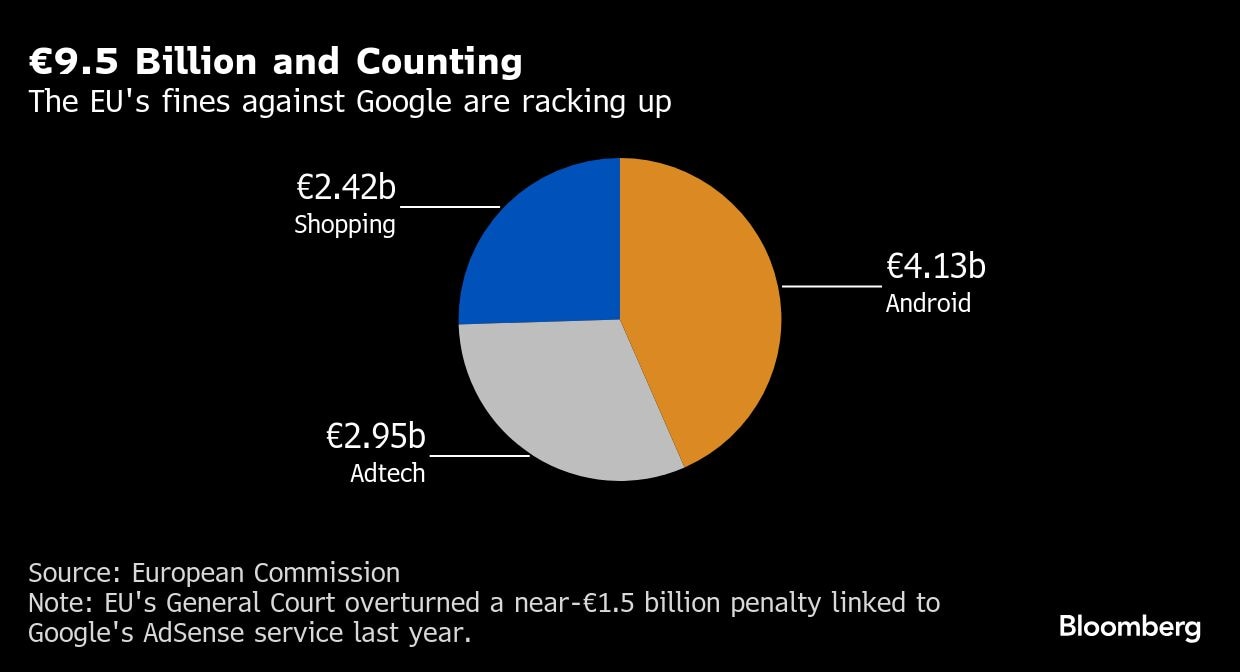
US Commerce Secretary Howard Lutnick said the European Union needs to change its digital regulations in order to get a deal to lower steel and aluminum tariffs.
“We are talking to them about” rolling back EU tech rules, Lutnick said in an interview with Bloomberg Television. “In exchange for that, we will come up with a cool steel and aluminum deal.”
Lutnick and US Trade Representative Jamieson Greer were in Brussels on Monday for their first official visit since reaching a trade deal with the EU in July.
The deal set a 15% US tariff on many EU goods, while the EU pledged to erase tariffs on US industrial products as well as some agriculture and food items. The two sides also vowed to keep working to lower other tariffs, including a 50% levy on EU steel and aluminum, which the bloc has now matched with its own 50% tariff on steel imports above a certain quota.
What bothers European officials and companies is the changing scope of President Donald Trump's sectoral tariff authority — far beyond the ability to target the raw metals themselves. Since the US-EU deal, Washington has broadened the steel tariffs to include many items that weren't subject to duties at the time.
Lutnick made clear any steel and aluminum deal is contingent on the EU rolling back some of its regulations on major American tech companies.
“The idea is if they take the foot off this regulatory framework and make it more inviting for our companies, they can get the benefit of hundreds of billions, possibly $1 trillion of investment,” Lutnick said.
Lutnick's direct linkage between the two issues puts the bloc in a difficult bind. The EU has consistently said it will not let other countries dictate its tech rules. But the metals tariffs are also causing bruising economic harm across the continent.
“Regarding steel and aluminum, we must achieve additional relief,” German Economy Minister Katherina Reiche told reporters on Monday. “Many machines that have been produced can't be delivered to the US and our companies are suffering from considerable declines in sales.”
Before having lunch with EU trade ministers, Lutnick and Greer also met with EU technology czar Henna Virkkunen to discuss digital regulations.

According to the European Commission, which handles trade for the EU, Virkkunen stressed the importance of the bloc's two central tech rulebooks, the Digital Services Act and the Digital Markets Act, which regulate online platforms and marketplaces. She also ran through a recent EU proposal to slash AI and data protection rules in the hopes of reducing bureaucracy.
At a midday briefing, a commission spokesperson reiterated the bloc's stance that it would not negotiate its tech and tax rules as part of trade talks with the US.
“Yes, this is absolutely still the case,” the spokesperson, Thomas Regnier, told reporters.
The Trump administration has long fumed that the EU treats American tech giants unfairly, pointing to both its regulations and large fines the bloc has imposed on firms like Google, which is facing a nearly €3 billion ($3.4 billion) antitrust penalty.
“Let's settle the outstanding cases,” Lutnick said. “Let's put them behind us.”
He added: “Let's come up with a reasonable framework where these companies can grow and build.”
After Monday's meetings, EU trade chief Maros Sefcovic said he wanted to reassure Lutnick that the bloc's digital rules “are not discriminatory” and “not aimed at US companies.”
“We just simply need to do more of explanation in that regard,” he told reporters.
But Greer, speaking alongside Sefcovic, countered that the rules often include thresholds that only capture US firms. He also said compliance with the laws “can become challenging,” called the EU's enforcement “quite aggressive at times” and noted that “fines can be quite large.”
Essential Business Intelligence, Continuous LIVE TV, Sharp Market Insights, Practical Personal Finance Advice and Latest Stories — On NDTV Profit.























